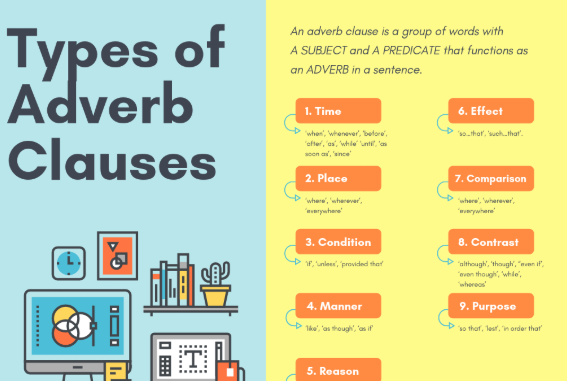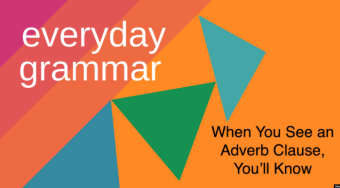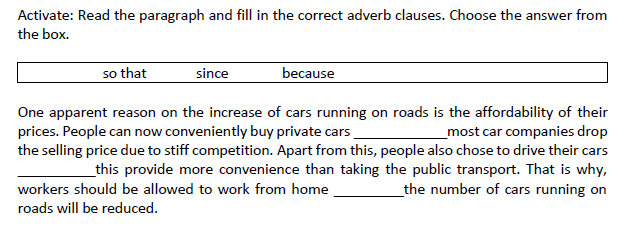IELTS Writing Task 2 Basic
Adverbial Clauses: Concession and Place Clause

IELTSのライティングTask 2の採点基準「Grammatical Range and Accuracy
文法の幅と正確さ(25%)」で高い評価を得るために、エッセイの文章構成は単文だけでなく、
複文(complex sentences)を使うことが必要です。
副詞節 (Adverbial Clause) とは
節とは、 S + V の関係を持つもので「文の中の文」とも言えます。節には文全体の主語とその述語動詞から成り立つ 主節 と、それに従属的な働きをする 従属節 があります。従属節は 名詞節・形容詞節・副詞節 の 3つに分類されたます。
副詞節とは、副詞の働きをする「節」のことで,普通、接続詞で導かれます。副詞節を導く接続詞には whenやif, because, thoughなどいろいろあります。
今回は譲歩・対象と場所の副詞節 (Adverbial Clauses: Concession and Place Clauses )で複文を書くことを学んでいきます。
although、 though 譲歩の副詞節
Although the operation is not without risk, he intends to have it done.
その手術にリスクがないわけではないが、彼はそれを行うつもりでいる。

He isn’t greedy for money, though he is rich.
彼はお金持ちだけれども、お金に対して執着はない。
while 対照の副詞節
He likes sports, while I like books.
彼はスポーツが好きだが、私は本が好きだ。

wherever , where 場所の副詞節
whereverを使った文の形は
wherever+主語+動詞+~となり、
whereverが作る文は副詞節になります。
You may sit wherever you want to.
あなたは、座りたいところどこでも座ってよい。

Put the magazine back where you found it.
雑誌をもとあったところに戻しておきなさい
The book was not where she said it would be.
その本は、彼女があるだろうと言ったところにはなかった
Study: 試験で使える! 例文 譲歩・対象, 場所の副詞節

1. Although e-readers are popular, most people still prefer books.
2. The state wants to increase taxes though his party disagrees.
3. Internet usage increased, while phone usage decreased.
4. Even though the roads have been widened, heavy traffic has not been reduced.
5. Road sign warnings are placed wherever there is an accident-prone area.
6. Some taxpayers are uncertain of where their taxes go.


























